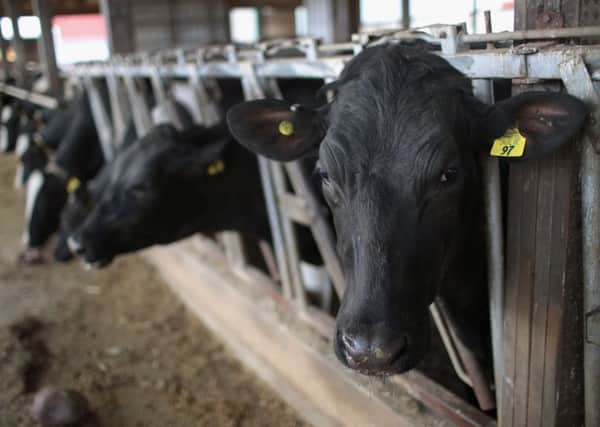Post-Brexit trade deals with the US could have disastrous effects


Trade in food and agricultural products is likely to be a large part of the negotiations and as such concern us all.
While these claims are causing outrage and fear, consumers in the UK are already likely to be consuming GM products. GM crops are not grown in the UK, apart from a few small batches at research centres, however, GM crops can enter Europe as food, animal feed, and biofuels.
Advertisement
Hide AdAdvertisement
Hide AdGM food and feed must be approved by EU regulators and labelled, but meat and dairy products produced from animals fed on GM feed are not required to be labelled. Eighty per cent of cattle are being fed on GM products and with the demand for cheap food it would be hard to avoid unless you only purchased organic products, which often come at a premium price.
Food labelling isn’t always what it seems either – we can be eating foods labelled British when in fact it was only processed in the UK. In the US, there is no obligation to state chemicals used in food.
The EU imposes strict standards on members regarding issues such as animal welfare – this includes live transport of farm animals, the phasing out of battery cages for hens and allowing livestock more room to move around. This is not the case elsewhere – in the US, in particular, animals are kept intensively on feedlots where they live in unhygienic and overcrowded conditions before going to slaughter.
Due to these intensive conditions animals are dosed with antibiotics to increase weight and to prevent and treat disease – this practice was outlawed in Europe in 2006.
There have been increasing concerns about antibiotic resistance in humans due to the consumption of meat reared in such conditions. Antibiotic resistant bacteria can be transferred through several different ways such as consumption of meats, it can also be airborne. Antibiotic-resistant bacteria are also found in animal waste which is often sprayed as fertilizer and can contaminate crops and water.
The US is known, along with other countries, to use trade deals to ‘dump’ excess products into those markets, flooding them with produce at a price that local producers can’t compete with, in turn, losing livelihoods and causing widespread misery and poverty.
Personally, I’m concerned about seeing issues arise in the UK, where food standards have been relatively high and steadily improving due to EU compliance. Although far from infallible they have allowed the discerning consumer some choice over their consumption.
A governmental desperation to secure post-Brexit trade deals with the US could have disastrous effects on an already heavily subsidised agricultural sector. Caveat emptor.
Nadine Pierce is a marketing consultant and MSc Gastronomy student. She lives in Midlothian.